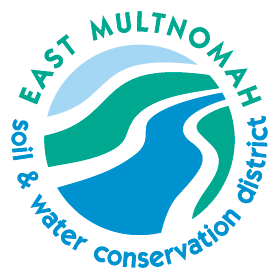The SPACE Grant Program advances EMSWCD's mission of helping people care for land and water by providing small grants for communities growing healthy food, improving water quality, restoring fish and wildlife habitat, and other related efforts. Schools, community groups, and nonprofit organizations are all encouraged to apply. By providing accessible funding for short-term projects and events, groups can undertake important smaller-scale conservation activities in the community with less lead time and administrative burden than larger grant programs. Everyone deserves the benefits of healthy soil and water and access to outdoor experiences and conservation education. We are always looking for opportunities to broaden participation and expand the impact of our grants. EMSWCD now provides SPACE grant awards of up to $2,500. Applications are reviewed by staff for eligibility and how strongly they meet the program criteria. EMSWCD's Executive Director or authorized senior staff have final approval. SPACE Grants are reviewed and awarded on a first-come, first-served basis. Funding decisions are usually made within three to four weeks after applying.
|
|||||||||||||||||||||||||||||||||||||||||||||||||||||||||||||||||||||
